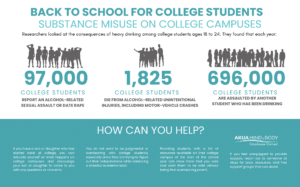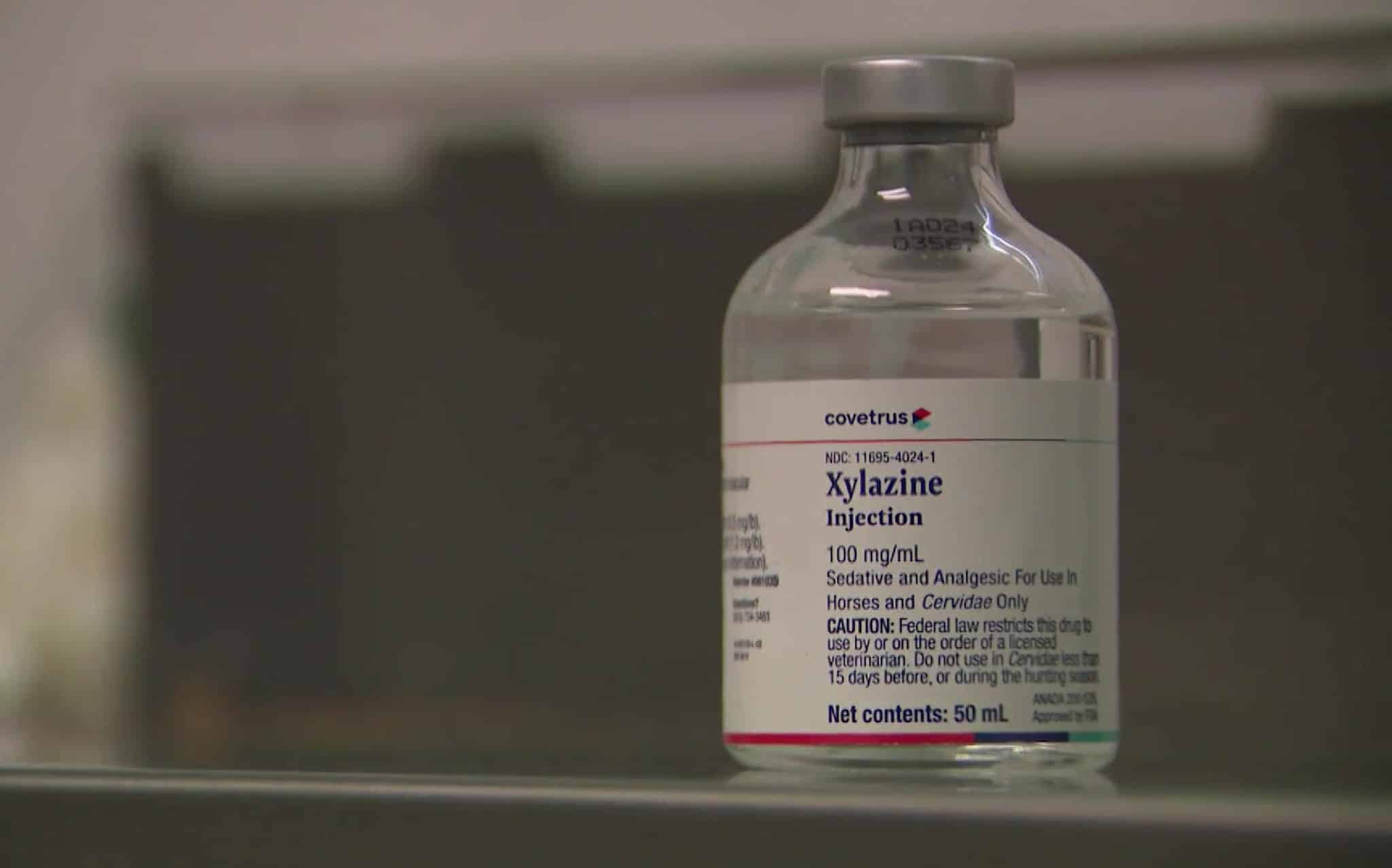Whether your son, daughter, or loved one is just starting their freshmen year or returning for another year back at college, it can be a big transition for them. Heading back to school, especially that first year of college, most likely means they are away from home and on their own.
Embracing their freedom could mean access to college parties, alcohol, and drugs. With intense academics and a large social scene, college students often use alcohol and drugs to let loose and blow off steam; however, this can turn into misuse and, over time, can lead to an addiction.
As a parent, having an open conversation about college parties, stress, and drug use is important so your son or daughter can use their best judgment. The first step is educating yourself as a parent regarding drug use on college campuses.
Alcohol is the most used drug on college campuses, followed closely by Cannabis (41.9%), tobacco and nicotine delivery products (33.1%), hallucinogens (8.9%), and prescription stimulants (6.9%). Hallucinogens, cocaine, sedatives, and MDMA are also rampant on college campuses.
Binge drinking in college
According to studies, college students binge drink at a higher rate than individuals of the same age who are not in college. Peer pressure, academic stress, being away from home, having access to alcohol, and poor mental health all contribute to college students’ binge drinking. Binge drinking is defined as drinking enough alcohol within one period to bring the blood alcohol content (BAC) to 0.08%. This is often defined in the number of drinks: 5 drinks or more on one occasion for males and four drinks or more for females. However, some college students drink at least twice that amount, a behavior that is often called high-intensity drinking. Unfortunately, binge drinking and heavy drinking among college students can have devastating consequences. Alcohol poisoning, poor mental health, liver disease, injury to the stomach and pancreas, sexual assault, reckless behaviors such as driving drunk, and violent injuries are all related to binge drinking among college students.
Researchers looked at the consequences of heavy drinking among college students ages 18 to 24. They found that each year:
- 1,825 college students die from alcohol-related unintentional injuries, including motor-vehicle crashes.
- 696,000 college students are assaulted by another student who has been drinking.
- 97,000 college students report an alcohol-related sexual assault or date rape.

Stimulant abuse in college students
You often assume that college students abuse alcohol, marijuana, and tobacco, and although this is true, one drug that many parents overlook is Adderall. Adderall is a prescription stimulant that is used to treat attention deficit hyperactivity disorder (ADHD) but is commonly misused and abused by college students, shift workers, and even the elderly population to increase alertness and concentration. Since Adderall is a stimulant, it does have a potential for addiction and can cause unhealthy and unwanted side effects. According to research, “estimates are that up to 20% of college students abuse prescription stimulants for recreational or academic purposes, most often by obtaining the medications from peers who hold prescriptions. Potentially dangerous health effects from ingesting non-prescribed stimulants include cardiac irregularities, elevations in blood pressure, dependency (with frequent use), and paranoia. In addition to these potential effects, recent work indicates cognitive dysfunction in college students who misuse prescription stimulants, including dysfunction in self-monitoring and abnormalities in working memory”.
Additionally, combining one substance, such as Adderall, with another substance, such as alcohol or marijuana, may mask the effects of one of the drugs, making the situation more dangerous. For example, suppose your college son or daughter is taking Adderall while consuming alcohol. In that case, the effects of Adderall can mask the amount of alcohol consumed, putting the individual at greater risk for alcohol overdose or toxicity.
How can you help?
If you have a son or daughter who has started back at college, you may not be able to control their every move. Still, you can start by educating yourself on what happens on college campuses and encourage your son or daughter to come to you with any questions or concerns. You do not want to be judgmental or overbearing with your college students, especially since they are trying to figure out their independence while balancing a stressful academic load. Many resources for substance misuse and addiction geared toward college students are available on most college campuses.
These include peer support groups, 12-step college recovery programs, counseling services on campus, Students For Recovery support groups, and Collegiate Recovery Programs (CRPs) or Collegiate Recovery Communities (CRCs). These college-based programs are designed to help promote student recovery through drug- and alcohol-free opportunities to socialize, substance-free housing, crisis support, and more.
Providing your students with a list of resources available on their college campus at the start of the school year can show them that you care and want them to be safe without being that overbearing parent. You want to be a sounding board for them in case there is trouble; your son or daughter can trust you enough to ask for help. If you feel unequipped to provide support, reach out to someone at Akua for tools, resources, and free support groups that can assist.




